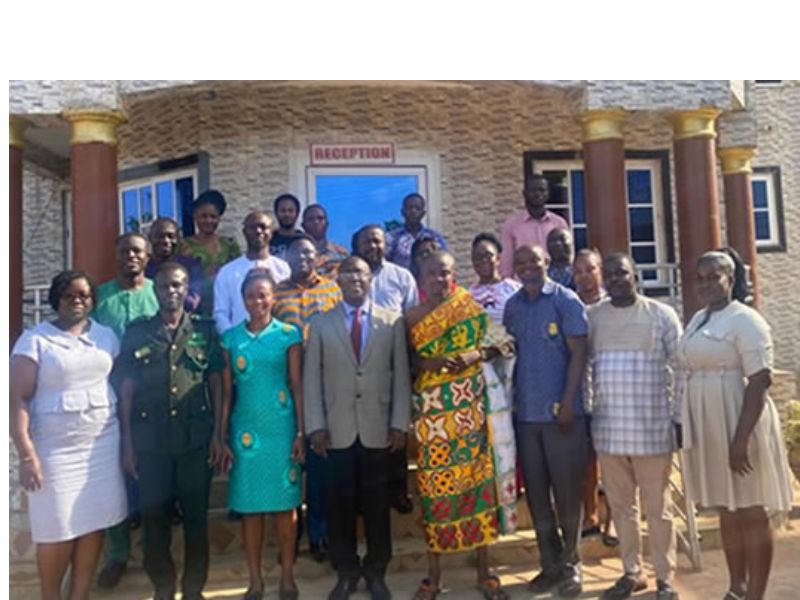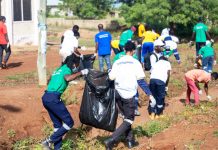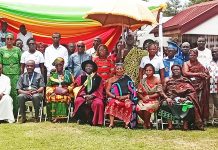The Ahafo Regional Directorate of the Ghana Health Service (GHS) has organized a day’s training workshop for members of the Regional Risk Communication and Community Engagement Sub-Committee (RCCE) in the region to strengthen the committee’s capacity in risk communication and dispel misinformation on topical disease management in Goaso, the regional capital.
The workshop, organized under the auspices of the Ghana Health Service (GHS) with support from United States Agency for International Development (USAID) and Breakthrough ACTION-Ghana, was meant to equip the committee with the skills to effectively and efficiently communicate on infections, control and prevention of tropical and zoonotic diseases in the region.
In his welcome address, the Ahafo Regional Director of Health Services, Dr. Samuel Kwabena Boakye-Boateng cautioned media practitioners and users of social media platforms to seek professional and expert information and views before publications to prevent creating panic and misinformation on what they publish.
He lamented the recent outbreak of Mpok and rabies in the region that led to avoidable deaths but was quick to commend health authorities and partners for their quick response and collaboration.
Dr. Boakye-Boateng called for an Ahafo Epidemic Preparedness Plan and appealed to the stakeholders to make inputs to make it holistic to include all the six Municipal and District Assemblies (MDAs) in the region.
On the inauguration of the Risk communication and Community Engagement (RCCE) Sub-Committee, he said their mandate is to influence positive behaviors at the household and community levels as well as to raise awareness and generate demand for response activities and services. “The platform is for sharing of information, experience and best practices”, he emphasized.
He praised the Regional Health Directorate, the Ahafo Regional Coordinating Directorate (ARCCD) and stakeholders for their support and professionalism in the fight against COVID-19 epidemic in the region.
In a presentation on Risk Communication, Community Engagement (RCCE) and Social Mobilization the Ahafo Deputy Director in charge of Public Health, Dr. Ziem Bernard, intimated that in 2022 Mpok outbreak by October 3rd, according to the World Health Organization (WHO) reported 68,265 laboratory Mpok cases in 106 countries worldwide and in Ghana 107 cases as at November, 2022 with 4 mortalities with 14 out 16 regions recording cases.
He therefore tasked the committee to be proactive in their communication and provide information on the potential implications of these phenomena in a timely and transparent manner to residents in the region.
“As members of the committee, it is important to manage all stages of any outbreak by responding and providing the right information to the people to diffuse rumors and misinformation
Dr. Ziem Bernard took participants through the rationale of the committee, objectives, presentation on Mpok disease, risk communication and community engagement in public health emergencies and the role of the RCCE among others.
Mr. Seth Adjei, GHS Headquarters of the Public Health Division for his part, lamented the emergence and reemergence of issues of public health in areas of COVID-19, Mpok, Rabies, Marburg and others across the country and hence called for the need to strategize to control and manage them.
He explained that the RCCE was a major pillar in the effective and efficient implementation of communication strategies to residents and communities.
“The RCCE would be a multi-disciplinary and inter-sectoral group mandated to provide technical support for efficient planning, organization and execution of risk communication and community engagement activities during public health emergencies”, he opined.
Mr. Adjei therefore, tasked members of the committee to demonstrate commitment and dedication to their responsibilities by taking into consideration the health needs of people, animals and environment of the region.
In solidarity messages, representatives of the partners United States Agency for International Development (USAID) and Breakthrough ACTION pledged their readiness to support the RCCE with more capacity programmes to empower members with the knowledge to handle information on infections, prevention and control as a communication tool to engage communities.
“When you conduct risk communication, it’s important that you step down to the community and its people to promote community support and confidence”, he noted.
He pledged his organization’s Preparedness to support the region and the RCCE with new interventions to improve healthcare delivery of the region.
The project is a partnership led by Johns Hopkins University Center for Communication Programs (JHUCCP) in Ghana, Breakthrough ACTION and Government of Ghana to influence social and behavioral change communication on malaria, maternal newborn, child health, family planning/reproductive health, nutrition, WASH-IPC, capacity-building, COVID-19 prevention and vaccine risk communication and Marburg and Mpok communication.









